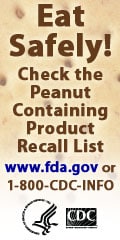Disposal of unused or expired medication is a problematic issue in many communities. Medications disposed of in the toilet enter the waste-water stream and can contaminate local water supplies. With the help of Susan Waite from the Amherst, DPW, we offer a list of "best practices" for medication disposal. If you have further questions, please call the Amherst DPW (259-3049) or Health Department (259-3077) for further assistance.
Best Practice: hazardous waste incineration
Option 1: Bring medications to an unwanted medicine collection event
The best option for unwanted medicine disposal is incineration. Unfortunately organizing a medicine collection event is expensive and complicated because the police and a pharmacist must be present. A few communities in the region have the funding to support such collections and may be willing to take material from Amherst. Call the Recycling Coordinator at 259-3049 to see if there is a collection opportunity in the near future.
Option 2: Bring medications to your pharmacy or physician
Some pharmacies and medical practice may or may not accept unwanted medicine for disposal, but it is always worth asking.
Option 3: Not best practice, but 10X better than drain or toilet disposal:
Carefully prepare the medicine for disposal in your regular household trash (which typically is sent to a landfill). Here is the recommended process:
1. Keep material in it's original container. Labels may contain safety info and caps are usually childproof, but scratch out identifying information about the patient.
2. Modify the contents to discourage consumption. Add a small amount of water to pills or capsules. To liquid medications, add table salt, flour, kitty litter, charcoal, or powdered spice like turmeric or mustard.
3. Seal & conceal. Close the container and seal with packing or duct tape and put it inside a non-transparent bag or container such as an empty yogurt or margarine container to ensure contents cannot be seen. If you use a recyclable container seal it with packing or duct tape and write “Do not open, Do not recycle” on the container.
4. Discard in your household garbage. Do not place in recycling bin. Do not conceal medicines in food products because they could be inadvertently consumed by wildlife scavengers.
Compiled from information from the Minnesota Pollution Control Agency, AARP, and the MA Dept of Environmental Protection.
skip to main |
skip to sidebar
This is the blog of the Amherst Public Health Department. Here you'll find public health updates, links to health-related sites, blog posts by employees of the Amherst Public Health Department, and various articles of interest. Feel free to contact us by email via a link in our profile. Please bookmark this page and visit often!
About Us
- Amherst Health Department
- Amherst, MA, United States
- The mission of the Amherst Board of Health, working through the Health Department, is to promote the health and well-being of our community with special emphasis on eliminating health disparities. We fulfill this mission through our core functions: assessment, assurance, promotion, and policy development.
Twitter Updates
Blog Archive
Labels
african american health
(1)
alcohol
(1)
animals
(1)
asbestos
(1)
asthma
(1)
cancer
(2)
CDC
(14)
children
(5)
diabetes
(1)
elder safety
(1)
events
(2)
family
(1)
FDA
(6)
fitness
(3)
food insecurity
(2)
food safety
(1)
H1N1 Influenza
(24)
health care
(1)
health disparities
(2)
Hispanic health
(1)
infectious disease
(5)
influenza
(9)
Latino health
(1)
medication disposal
(1)
MRSA
(2)
obesity
(1)
pandemic flu
(1)
pregnancy
(1)
public health
(5)
rabies
(1)
recalls
(27)
safety
(2)
salmonella
(11)
screening
(1)
STDs
(1)
technology
(1)
teenagers
(3)
Tick-borne illnesses
(1)
vaccinations
(2)
West Nile Virus
(1)
winter safety
(2)
young adults
(2)
Other Official Amherst Blogs
Amherst Resources
Local Health Resources
Other Local Health Dept Blogs
Health & Fitness Links
- America on the Move
- American Cancer Society
- American Diabetes Association
- American Medical Association
- BlackDoctor
- Fitness.gov
- Health.gov
- HealthFinder.gov
- HealthierUS.gov
- Healthline.com
- Healthy People 2010
- KidsHealth.org
- Mass In Motion
- MedlinePlus
- Nat'l Center for Complementary & Alternative Medicine
- National Health Information Center
- New York Times Wellness Blog
- SparkPeople
- WebMD
- Wellness.com
- Wellsphere.com
- WomensHealth.gov
Public Health Links
- American Public Health Association
- CDC Travelers' Health Website
- Centers for Disease Control
- Food and Drug Administration
- Food and Drug Administration
- GlobalHealth.gov
- MA Dept of Public Health
- MA DPH Public Health Blog
- Nat'l Assoc. of City & County Health Officials
- Nat'l Center for Farmworker Health
- National Institute for Mental Health
- National Institutes of Health
- Office of the Surgeon General
- Pioneer Valley Red Cross
- U.S. Department of Health & Human Services
- U.S. Food & Drug Administration
- Unnatural Causes
- World Health Organization





